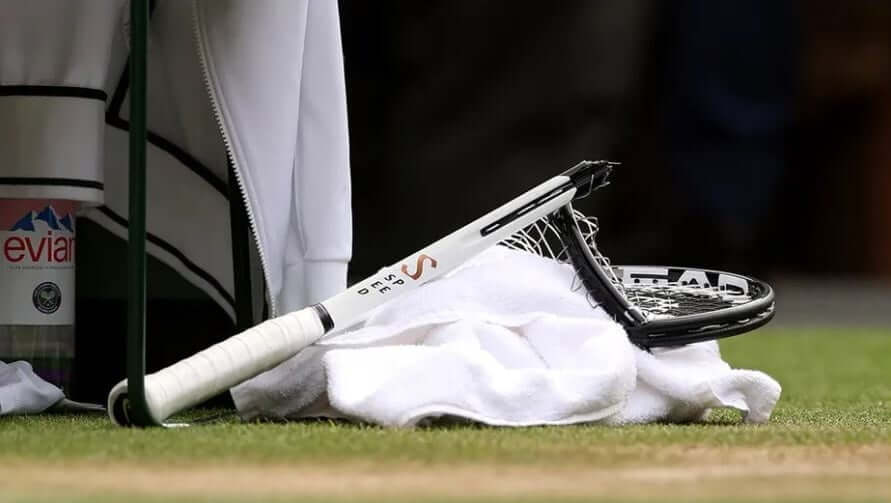Athletes at all levels are passionate about their sports. The amount of time, effort, and dedication they put toward their goals can make them do great things and, unfortunately, really bad things.
The players that learn to overcome their emotions separate themselves from the rest of the pack. They may feel the same heated anger, BUT they have tools to keep it in check and not show their opponents and the world that their emotions are out of control.
This applies to all levels of play – from professional to recreational! Here is Marcos Baghdatis destroying not one, not two, but FOUR racquets en route to a four-set loss to Stanislas Wawrinka in the second round of the 2012 Australian Open. He was fined $770 (and lost all respect) for the embarrassing incident.
If you are one of those players, who play on your emotions, meaning you are high when you’re winning and low when you’re losing, you will certainly benefit from self-awareness tips on how to control your emotions during a match.
The ability to refocus your attention to do the right thing at the right time is a key element in controlling anger and making you the better player!
Tips for Controlling Your Emotions in Tennis
When I was on the WTA tour, these tips really helped me keep my emotions in check.
- POSITIVE SELF-TALK: Athletes can coach themselves up by focusing on the right things.
- PRE-PERFORMANCE ROUTINES: This is a mental warm-up, with action items for athletes to check off before starting practice or competition. It can include going over goals, visualization, positive self-talk, listening to music.
- PERFORMANCE RITUALS: These happen throughout your match. It is something as simple as bouncing the ball a certain way when serving or walking to the back fence while you adjust your strings. These motions give you brief moments to calm down, catch you breath, and focus on the next point.
- TAKE DEEP BREATHS: Focusing on taking deep, slow breaths can be an important factor in regulating emotion.
- DEVELOP SELF-AWARENESS: Keep a journal of situations where strong emotions arise during play and how you dealt with them.
- RELAX YOUR BODY: Tense your muscles for a few seconds and then consciously relax them. This leads to a reduced heart rate, lesser feelings of physical exhaustion, and diminished anxiety.
Every athlete, no matter their level, needs to learn how to balance their emotions. There is no perfect formula. What works well for someone else is no guarantee that it will work well for you.
Are you one of these emotional players? Have you played against them? I’d love to hear about your experiences.

